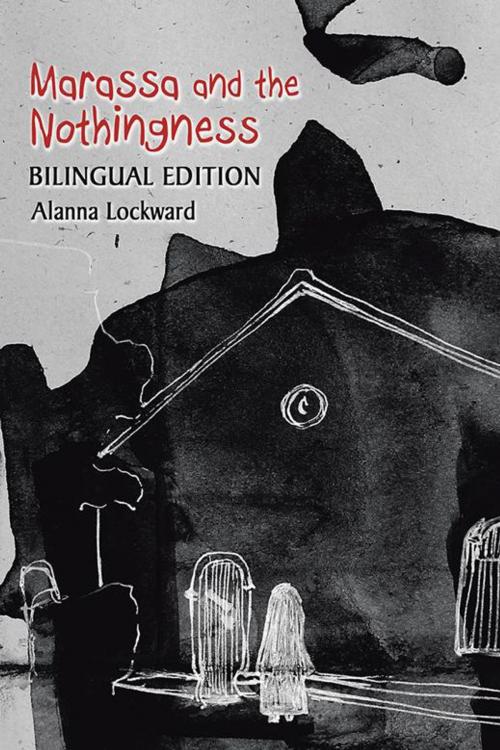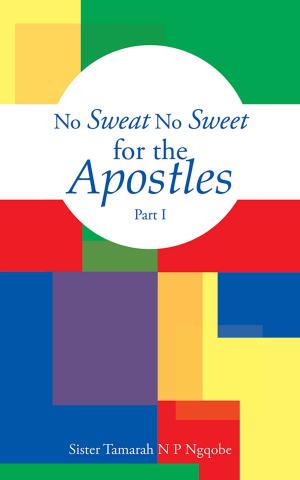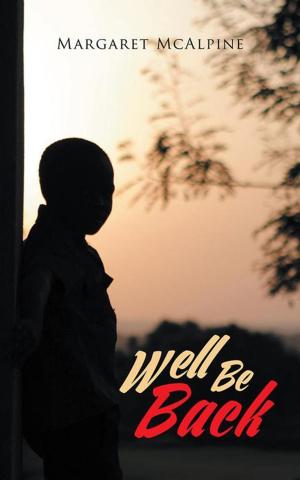| Author: | Alanna Lockward | ISBN: | 9781482825749 |
| Publisher: | Partridge Publishing Africa | Publication: | February 12, 2016 |
| Imprint: | Partridge Publishing Africa | Language: | English |
| Author: | Alanna Lockward |
| ISBN: | 9781482825749 |
| Publisher: | Partridge Publishing Africa |
| Publication: | February 12, 2016 |
| Imprint: | Partridge Publishing Africa |
| Language: | English |
The story revolves around two sisters: Laura, who lives in Paris and commits suicide, and Mara, who lives in Santo Domingo and absorbs the death of her sister by setting out to starve herself to death. A third woman, Moira, first cousin of the siblings who lives in New York City, narrates their story as she travels to Santo Domingo to rescue Mara. For Moira, the trip is also an opportunity to cross over to Haiti to search for the remains of the sisters mother, Doa Manuela Ricart de Porter, who had gone there for a spiritual retreat and disappeared without a trace. Moiras journey offers descriptions of Haiti beyond stale references to poverty, the sordid or sensational,and the guilt often invoked in writings about Haiti and its relations with the Dominican Republic. Profoundly feminist and allegorical, Marass and the Nothingness rewrites the narrative between these two nations by invoking unexpected figures revered in both sides of the island: Anacaona, the Virgin Altagracia, and the Sacred Twins.Certainly,this is a text that grows from dealing with the colonizer and colonized that, at least in the Caribbean, we all carry within. It shows the love that can emerge from understanding the 'other' not as a dehumanized object on which to unleash our furies or desires to dominate, but rather as an equal with whom to exchange something meaningfulpreciselybecause of our differences. Sophie Marez Assistant Professor of French and Spanish, Borough of Manhattan Community College, CityUniversity of New York "Alanna Lockward proves, once again, her phenomenal narrative skills of condensing in one single text the invisible (and macabre) structures upon which today's Caribbean realities are constructed" Rita Indiana Hernndez Author In this short and haunting novel Alanna Lockward offers a new take on one of the most complex postcolonial histories in the Americas and rescinds the epic and masculinist lens through which it is often told; Marass and the Nothingness foregrounds womens friendship and their acts of care and how these, in the face of great pain and death, may promise another future. Maja Horn Associate Professor, Chair. Department of Spanish and Latin American Cultures, Barnard College Marass and the Nothingness is the first storytelling by an already experienced writer. Lockward prose is concise, precise, understated yet complex. Through the pages the reader hears the rumor of a Caribbean female existentialism. In her narrative and in all her work as curator, Alanna Lockward delivers decolonial ways of emotioning, being and doing. Walter Mignolo William H. Wannamaker Professor of Literature at Duke University History, aesthetic workouts, word plays, dazzling Haiti, the Dominican Republic and Africa, this is reading Marass and the Nothingness , a most experimental novel . . . Ineke Phaf-Rheinberger Affiliated Professor of Literature, Institute of Romance Languages, RWTH Aachen, Germany
The story revolves around two sisters: Laura, who lives in Paris and commits suicide, and Mara, who lives in Santo Domingo and absorbs the death of her sister by setting out to starve herself to death. A third woman, Moira, first cousin of the siblings who lives in New York City, narrates their story as she travels to Santo Domingo to rescue Mara. For Moira, the trip is also an opportunity to cross over to Haiti to search for the remains of the sisters mother, Doa Manuela Ricart de Porter, who had gone there for a spiritual retreat and disappeared without a trace. Moiras journey offers descriptions of Haiti beyond stale references to poverty, the sordid or sensational,and the guilt often invoked in writings about Haiti and its relations with the Dominican Republic. Profoundly feminist and allegorical, Marass and the Nothingness rewrites the narrative between these two nations by invoking unexpected figures revered in both sides of the island: Anacaona, the Virgin Altagracia, and the Sacred Twins.Certainly,this is a text that grows from dealing with the colonizer and colonized that, at least in the Caribbean, we all carry within. It shows the love that can emerge from understanding the 'other' not as a dehumanized object on which to unleash our furies or desires to dominate, but rather as an equal with whom to exchange something meaningfulpreciselybecause of our differences. Sophie Marez Assistant Professor of French and Spanish, Borough of Manhattan Community College, CityUniversity of New York "Alanna Lockward proves, once again, her phenomenal narrative skills of condensing in one single text the invisible (and macabre) structures upon which today's Caribbean realities are constructed" Rita Indiana Hernndez Author In this short and haunting novel Alanna Lockward offers a new take on one of the most complex postcolonial histories in the Americas and rescinds the epic and masculinist lens through which it is often told; Marass and the Nothingness foregrounds womens friendship and their acts of care and how these, in the face of great pain and death, may promise another future. Maja Horn Associate Professor, Chair. Department of Spanish and Latin American Cultures, Barnard College Marass and the Nothingness is the first storytelling by an already experienced writer. Lockward prose is concise, precise, understated yet complex. Through the pages the reader hears the rumor of a Caribbean female existentialism. In her narrative and in all her work as curator, Alanna Lockward delivers decolonial ways of emotioning, being and doing. Walter Mignolo William H. Wannamaker Professor of Literature at Duke University History, aesthetic workouts, word plays, dazzling Haiti, the Dominican Republic and Africa, this is reading Marass and the Nothingness , a most experimental novel . . . Ineke Phaf-Rheinberger Affiliated Professor of Literature, Institute of Romance Languages, RWTH Aachen, Germany















